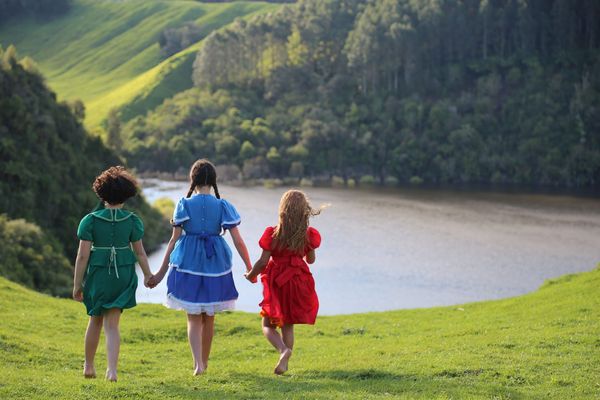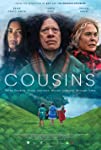Eye For Film >> Movies >> Cousins (2021) Film Review
Cousins
Reviewed by: Jennie Kermode

Earlier this year, a long-running Waitangi tribunal in Aotearoa found that structural racism and a lingering colonial mindset had contributed to the removal of large numbers of Maori children from their families, over many decades, and their placement in institutional care. It didn't go as far as many of those who originally raised complaints would have liked, and it could be a long time before they receive any justice for abuses reportedly committed against them in care, but it's an important start in the process of formally acknowledging what happened to these children - something Maori people have increasingly been discussing in the same terms as Australia's Stolen Generation.
Published in 1993, Patricia Grace's novel Cousins is an important part of that conversation. With very few Maori women getting published, Grace's work and the perspectives it brings to the fore have obvious value, but Cousins is important in its ability to speak to Maori truths whilst reaching out to a wider readership, making many white people in the country aware of the issue for the first time. Previous efforts to bring it to the screen have been stymied by funding bodies' attempts to soften its tone and dilute its political message, but now it has finally been developed in a form that stays true to the source, scripted and co-directed by Grace's own daughter-in-law Briar Grace Smith, and thereby a product of whanau (a local extended family), which is also an important aspect of its subject matter.
At the centre of the story are three women, Missy (played at various stages of her life by Keyahne Patrick Williams, Rachel House and Hariata Moriarty), Makareta (Shannon Williams, Mihi Te Rauhi Daniels, Tioreore Ngatai-Melbourne and Briar Grace Smith herself) and Mata (Te Ao Marama Baker, Te Raukura Gray, Ana Scotney and Tanea Heke). Simply coordinating all these actors and maintaining a consistent sense of the characters over time is no mean feat, and Smith and co-director Ainsley Gardiner deserve praise for the smooth way they pull it off. The three seem happy enough in childhood, when Mata goes to stay with the others for a while because her mother is struggling, but their happy time together ends when white authorities decide to take Mata into care. There her name is changed, her hair (temporarily) straightened, and efforts are made to strip away her Maori identity.
Could it have been worse? Survivors of the orphanages have truly horrific tales to tell, but by keeping what we see simple, this story highlights the damage done by the process itself. It also invites us to fill in gaps - we should only need to see small children being beaten once to imagine the rest. Retreating into herself, Mata becomes deferent and demure, highlighting the way that learning to conform and avoid violence also has a damaging effect on the psyche. Cut off from her whanau, she is rootless, insecure and vulnerable, and we see how these things affect her as she grows up and tries to cope with work and relationships, gradually accumulating more and more damage. Meanwhile, her cousins have their own issues to deal with, but they never stop looking for her.
There's a lot here that anyone will be able to identify with, but the film also makes space for issues of particular importance to Maori communities, such as a struggle over control of traditionally-owned land and conflicting thoughts about a tomo (an arranged marriage intended to unite whanau). This space matters given how few realistic depictions of Maori life there are in cinema, but equally important is the ease with which they fit into the overall story so that this is, first and foremost, a successful piece of drama. Many people will doubtless watch it without any understanding of the issues it addresses, and still find it moving and engaging. It has a sharp eye for subtle expressions of racism and other forms of discrimination and exclusion, but it's also beautifully shot with a melodic score, heartfelt performances and complex interpersonal relationships that will keep you gripped.
The last few years have finally seen Maori writers and directors starting to carve out a space in the film industry. We can expect to see more work from these perspectives going forward, but for the start of a new cinematic movement, one couldn't do much better than this.
Reviewed on: 21 Jul 2021
















